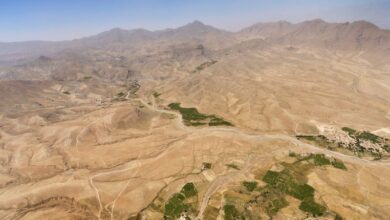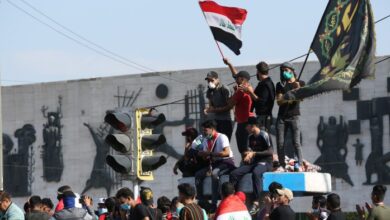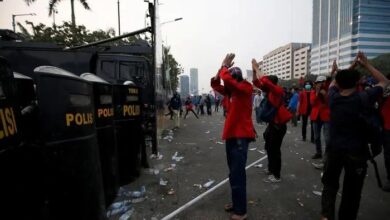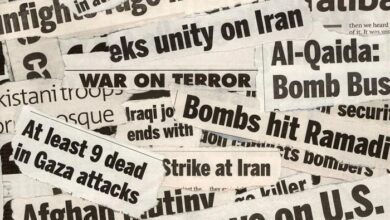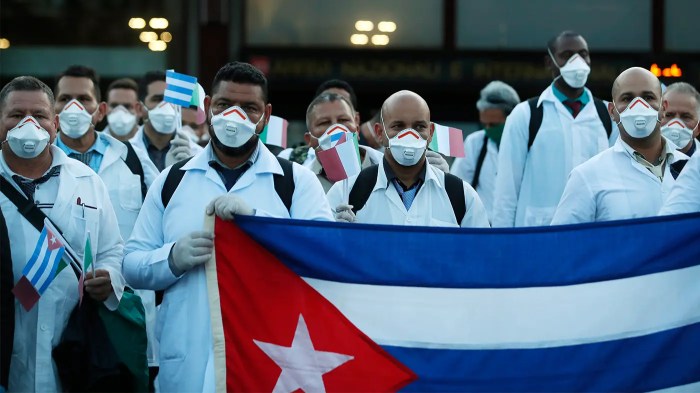
Cuba and Human Rights: A Complex Reality
Cuba and human rights are inextricably linked, forming a complex narrative that spans decades. Since the revolution, the island nation has been navigating the delicate balance between its socialist ideals and the universal principles of human rights. This journey has been marked by periods of progress and setbacks, with ongoing debates about the government’s role in upholding these rights.
This exploration delves into the historical context of human rights in Cuba, examining the evolution of discourse and the government’s perspective. We’ll then delve into contemporary concerns, including freedom of expression, political participation, and economic and social rights. By analyzing the legal framework, examining the impact of international sanctions, and exploring the role of civil society organizations, we aim to shed light on the multifaceted nature of human rights in Cuba.
Historical Context of Human Rights in Cuba: Cuba And Human Rights
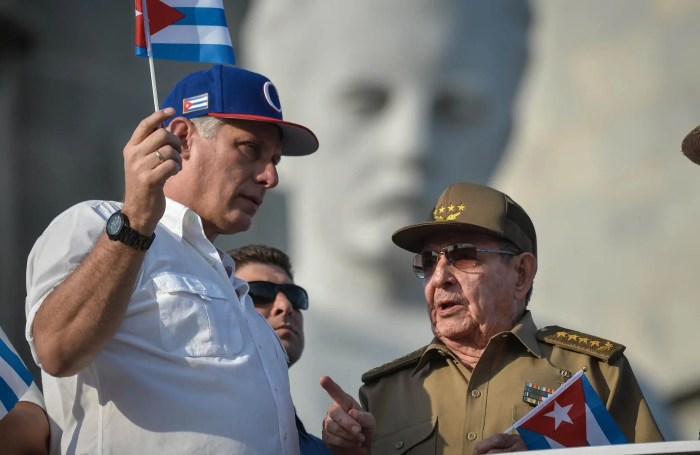
The concept of human rights in Cuba has undergone a complex evolution since the 1959 revolution. The government’s approach to human rights has been shaped by historical circumstances, political ideology, and international pressure. Examining the historical context provides insights into the current state of human rights in Cuba and the ongoing debates surrounding them.
Evolution of Human Rights Discourse in Cuba
The Cuban Revolution ushered in a new era for the island, promising social justice and equality. The government, led by Fidel Castro, initially focused on achieving economic and social development, viewing these as fundamental human rights. This approach, influenced by Marxist-Leninist ideology, prioritized collective rights over individual rights.
The government argued that individual freedoms were secondary to the collective good and the pursuit of social justice.
- In the early years, the government implemented policies aimed at improving access to healthcare, education, and housing, claiming these to be fundamental human rights.
- However, the government’s focus on collective rights came at the cost of individual liberties. Freedom of speech, assembly, and the press were restricted, and political dissent was suppressed.
- During the Cold War, Cuba’s human rights record became a subject of international scrutiny, particularly from the United States, which viewed Cuba as a communist threat.
The Role of the Cuban Government in Defining and Upholding Human Rights
The Cuban government has consistently maintained that it upholds human rights. However, its definition of human rights differs significantly from that of many Western governments. The Cuban government argues that its focus on social and economic development, along with its commitment to equality and social justice, constitutes a form of human rights protection.
- The government emphasizes the right to work, healthcare, education, and housing, considering these essential for a dignified life.
- The government also highlights its achievements in reducing poverty and inequality, arguing that these are crucial for promoting human rights.
- However, critics argue that the government’s emphasis on collective rights comes at the expense of individual liberties, such as freedom of speech, assembly, and association.
Historical Perspectives on Human Rights Held by Different Political Groups in Cuba
The Cuban political landscape is characterized by diverse perspectives on human rights.
Cuba’s human rights record remains a complex issue, with ongoing concerns about freedom of expression and political dissent. While the government emphasizes its social programs and healthcare system, international organizations like the UN and NGOs play a vital role in advocating for human rights and promoting development.
The work of non governmental organizations on development issues is crucial in providing support and raising awareness about the challenges facing Cuba, ultimately contributing to a more just and equitable society.
- The government, representing the Communist Party, emphasizes the importance of social and economic rights, arguing that they are essential for human dignity and development.
- Opposition groups, such as the Cuban Democratic Party, advocate for a broader definition of human rights, including individual liberties and political freedoms. They criticize the government’s restrictions on freedom of speech, assembly, and the press.
- Independent journalists and human rights activists, often facing government repression, highlight the importance of freedom of expression and the right to dissent.
Current Human Rights Concerns in Cuba
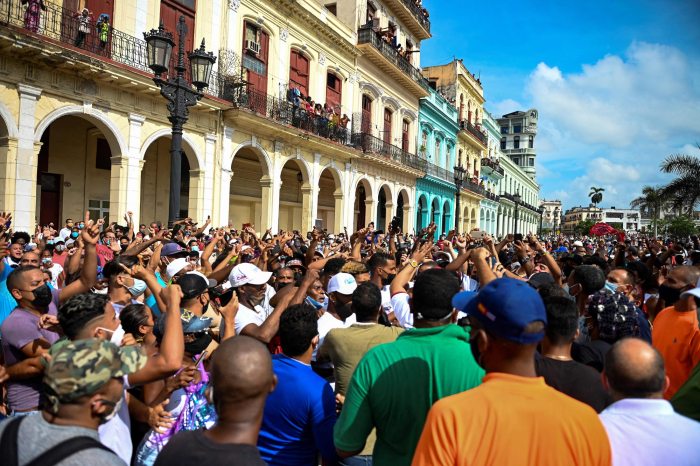
Cuba continues to face significant human rights challenges, despite recent reforms and improvements. The Cuban government’s limitations on freedom of expression, assembly, and association remain major concerns, along with the country’s legal framework, which often restricts individual rights and freedoms.
Restrictions on Freedom of Expression and Assembly, Cuba and human rights
The Cuban government tightly controls media and restricts access to information. Independent journalism is severely limited, and journalists often face harassment, intimidation, and imprisonment for criticizing the government. Restrictions on internet access and censorship of online content further restrict freedom of expression.
The government also limits the right to peaceful assembly, often denying permits for protests or demonstrations.
The Impact of Economic Sanctions on Human Rights
The United States’ economic sanctions on Cuba have had a significant impact on the country’s economy and human rights. The sanctions have limited Cuba’s access to international trade and investment, hindering economic growth and development. This has contributed to shortages of essential goods and services, impacting the well-being of the Cuban population.
Cuba’s human rights situation is complex, with the government facing criticism for its restrictions on freedom of speech and assembly. While the government provides basic necessities like healthcare and education, the country’s economic struggles have led to food shortages and rationing.
This brings up the issue of food aid, which can sometimes be problematic, as it can be seen as a form of “dumping,” where countries unload surplus goods at below-market prices, potentially harming local farmers. This article explores the complexities of food aid and its potential downsides.
Ultimately, addressing the root causes of Cuba’s economic difficulties and promoting human rights are essential for improving the lives of its people.
Critics argue that the sanctions disproportionately harm ordinary citizens while doing little to promote political change.
The Role of Civil Society Organizations in Advocating for Human Rights
Civil society organizations in Cuba play a vital role in advocating for human rights. Despite facing challenges and restrictions, these organizations work tirelessly to promote freedom of expression, assembly, and association. They document human rights abuses, provide legal assistance to victims, and raise awareness about human rights issues.
They also engage in dialogue with the government and international organizations to promote human rights reforms.
Freedom of Expression and Assembly
The Cuban government maintains strict control over freedom of expression and assembly, which are fundamental human rights. These rights are essential for a democratic society, allowing individuals to freely voice their opinions, participate in public discourse, and engage in peaceful gatherings.
The Legal Framework
The Cuban Constitution, adopted in 1976 and amended in 2019, acknowledges the right to freedom of expression and assembly. However, these rights are subject to significant limitations, particularly those that could undermine the “socialist order” or national security. For instance, Article 53 states that “the exercise of rights and freedoms must be in accordance with the Constitution and the laws,” leaving room for broad interpretation and potential abuse.
Restrictions on Freedom of Expression
- Censorship of Media and Information: The Cuban government maintains a strict control over media outlets, with most being state-owned or controlled. Independent journalism is severely restricted, and access to information from outside sources is limited. The government also restricts access to the internet and social media platforms, hindering the flow of information and freedom of expression.
- Repression of Dissent: The government uses various tactics to suppress dissent, including intimidation, harassment, arbitrary detention, and imprisonment. Individuals who criticize the government or engage in peaceful protests are often targeted. For example, in 2021, a wave of protests erupted across Cuba, prompting a severe crackdown by the authorities, with numerous arrests and harsh sentences for those involved.
- Restrictions on Public Gatherings: The government requires prior authorization for public gatherings, which is often denied for events considered politically sensitive or critical of the government. This effectively limits the ability of individuals and groups to assemble peacefully and express their views.
Impact of Restrictions
The restrictions on freedom of expression and assembly have a significant impact on the lives of Cuban citizens.
- Limited Access to Information: The government’s control over information flow restricts access to diverse viewpoints and perspectives, hindering informed decision-making and critical thinking.
- Fear of Repression: The constant threat of reprisal for expressing dissenting views creates a climate of fear and self-censorship, limiting public discourse and the free exchange of ideas.
- Suppression of Dissent: The government’s crackdown on dissent stifles the ability of citizens to challenge policies, hold authorities accountable, and advocate for change. This perpetuates a system where the government can operate with impunity.
Political Participation and Representation
Political participation and representation in Cuba are significantly influenced by the country’s one-party system and the Cuban Communist Party’s (CCP) dominance in government. While the Cuban constitution guarantees certain rights related to political participation, including the right to vote, the reality is that the CCP’s control over the political landscape limits the scope and effectiveness of these rights.
The Electoral System in Cuba
The Cuban electoral system is characterized by a single-candidate system where the CCP nominates the candidates for all levels of government. This system is based on the principle of “democratic centralism,” which emphasizes the CCP’s leading role in the political process.
While citizens are allowed to vote, they are only presented with one candidate per position, effectively limiting their choice.
The Role of Opposition Groups and Political Dissidents
Opposition groups and political dissidents face significant challenges in Cuba. The government restricts their activities, often labeling them as “counterrevolutionaries” or “agents of foreign powers.” The Cuban government maintains tight control over media and public gatherings, making it difficult for opposition groups to organize and express their views.
Challenges Faced by Cuban Citizens in Exercising Their Right to Political Participation
Cuban citizens face numerous challenges in exercising their right to political participation. These challenges include:
- Limited choice of candidates: The single-candidate system effectively eliminates any meaningful choice for voters.
- Restrictions on freedom of assembly and association: The government tightly controls public gatherings and restricts the formation of independent political organizations.
- Censorship and control over media: The government controls the media and limits access to alternative sources of information, making it difficult for citizens to engage in informed political discourse.
- Repression of dissent: The government has a history of suppressing dissent and silencing critics through intimidation, harassment, and imprisonment.
International Human Rights Mechanisms
Cuba’s human rights situation has been a subject of international scrutiny for decades. Numerous international human rights mechanisms play a role in monitoring and addressing human rights concerns in the country. These mechanisms provide platforms for raising concerns, promoting dialogue, and advocating for change.
The Role of International Human Rights Mechanisms
International human rights mechanisms play a crucial role in monitoring the human rights situation in Cuba. They provide a framework for holding the Cuban government accountable for its human rights obligations. These mechanisms operate through various means, including:
- Reporting:International human rights bodies, such as the UN Human Rights Council, request periodic reports from Cuba on its human rights record. These reports provide valuable insights into the human rights situation and allow for independent assessment.
- Special Procedures:The UN Human Rights Council has established special procedures, including Special Rapporteurs, Independent Experts, and Working Groups, which focus on specific human rights issues, such as freedom of expression, torture, and the right to development. These experts can conduct investigations, issue reports, and make recommendations to the Cuban government.
- Universal Periodic Review (UPR):The UPR is a mechanism of the UN Human Rights Council that reviews the human rights records of all UN member states every four years. This process involves a dialogue between the state under review and other UN member states, providing an opportunity to raise concerns and make recommendations.
- Treaty Bodies:Cuba is a party to several human rights treaties, including the International Covenant on Civil and Political Rights (ICCPR) and the International Covenant on Economic, Social and Cultural Rights (ICESCR). Treaty bodies established under these treaties monitor state compliance with their obligations and can issue recommendations.
Cuba’s human rights record continues to be a source of concern, with ongoing restrictions on freedom of speech and assembly. It’s a stark reminder that even in the face of international scrutiny, governments can choose to prioritize control over individual liberties.
The recent revelation that ex-feds are blasting the 9/11 panel and Bush for their handling of intelligence underscores the importance of accountability and transparency, especially when it comes to matters of national security. While the Cuban government’s actions may be driven by different motivations, the underlying issue of power and control remains the same.
Effectiveness of International Human Rights Mechanisms
The effectiveness of international human rights mechanisms in addressing human rights concerns in Cuba is a complex issue. While these mechanisms provide valuable platforms for raising concerns and promoting dialogue, their impact on improving the human rights situation in Cuba has been limited.
Some key challenges include:
- Limited Access and Cooperation:The Cuban government has often been reluctant to cooperate fully with international human rights mechanisms, limiting access to information and restricting the activities of UN experts and human rights organizations.
- Lack of Enforcement:International human rights mechanisms primarily rely on persuasion and diplomacy, lacking the power to enforce their recommendations. This can make it difficult to hold the Cuban government accountable for its actions.
- Political Context:The Cuban government has a long history of resistance to international scrutiny and criticism, often framing human rights concerns as part of a broader political campaign against the country.
Relationship Between the Cuban Government and International Human Rights Bodies
The relationship between the Cuban government and international human rights bodies has been characterized by a mix of cooperation and resistance. The Cuban government has engaged in some aspects of the international human rights system, such as submitting reports to the UN Human Rights Council.
However, it has often been critical of international human rights mechanisms, accusing them of bias and interference in Cuba’s internal affairs. The Cuban government has also resisted attempts by international human rights bodies to conduct independent investigations or engage with civil society groups in Cuba.
“The Cuban government has often resisted attempts by international human rights bodies to conduct independent investigations or engage with civil society groups in Cuba.”
Human Rights and Development
The relationship between human rights and development in Cuba is complex and multifaceted. While the Cuban government has made significant strides in promoting social and economic development, particularly in areas such as healthcare and education, it has also been criticized for its restrictions on political and civil liberties.
This raises the question of whether human rights violations can hinder economic and social progress.
The Impact of Human Rights Violations on Economic and Social Development
Human rights violations can have a detrimental impact on economic and social development in Cuba. Restrictions on freedom of expression and assembly can stifle innovation and entrepreneurship, hindering the growth of the private sector. Lack of political participation and representation can lead to a lack of accountability and transparency, undermining public trust in government institutions.
Moreover, the suppression of dissent and the absence of due process can create an environment of fear and uncertainty, discouraging investment and foreign aid.
The Role of Human Rights in Achieving Sustainable Development Goals
The United Nations Sustainable Development Goals (SDGs) recognize the importance of human rights in achieving sustainable development. The SDGs emphasize the need for inclusive and equitable societies, promoting peace and justice for all. In Cuba, achieving the SDGs will require a commitment to upholding human rights, including freedom of expression, assembly, and association, as well as ensuring access to justice and due process.
“The promotion and protection of human rights is essential for sustainable development. It is a matter of both principle and pragmatism.”
UN Human Rights Office
The Cuban government has made progress in improving social indicators such as literacy rates and life expectancy. However, achieving sustainable development in Cuba requires a more comprehensive approach that prioritizes human rights. By fostering an environment of respect for human rights, Cuba can create the conditions for a more prosperous and equitable society.
Perspectives on Human Rights in Cuba
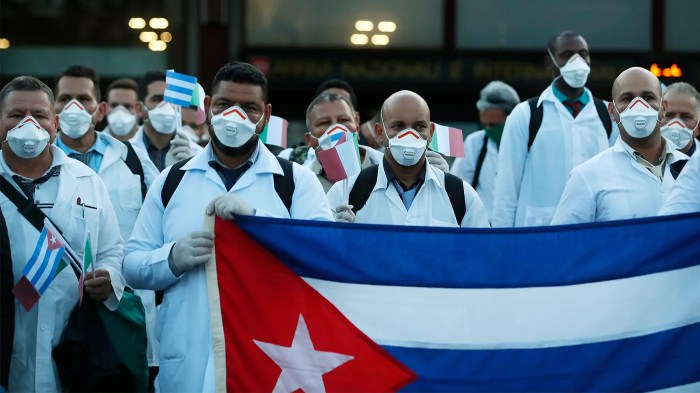
Understanding human rights in Cuba requires considering various perspectives, as the issue is complex and multifaceted. Different stakeholders hold distinct views on the state of human rights in the country, influenced by their experiences, values, and political affiliations.
Perspectives on Human Rights in Cuba
The following table summarizes the key perspectives on human rights in Cuba:
| Perspective | Key Points | Evidence and Examples |
|---|---|---|
| Cuban Government |
|
|
| Civil Society Organizations |
|
|
| International Human Rights Groups |
|
|
| Cuban Citizens |
|
|

